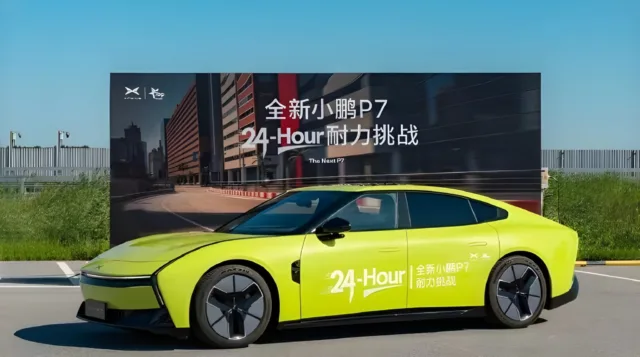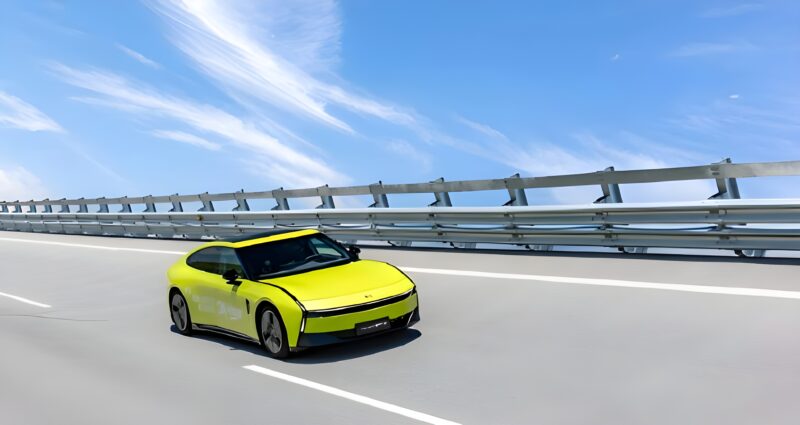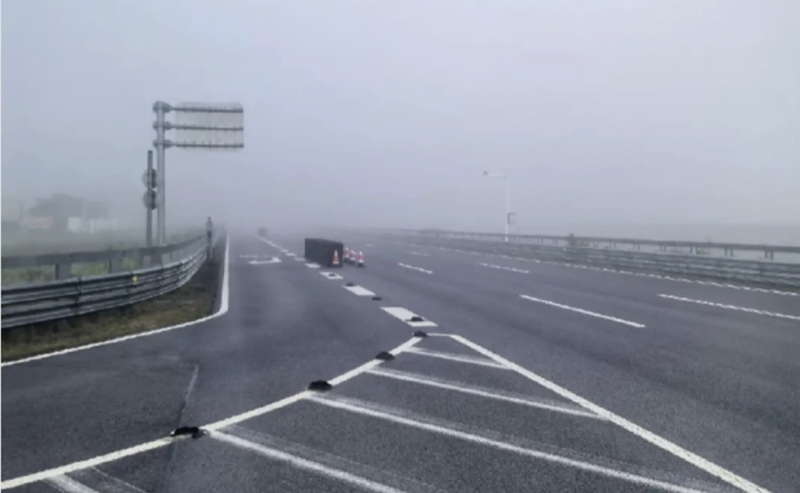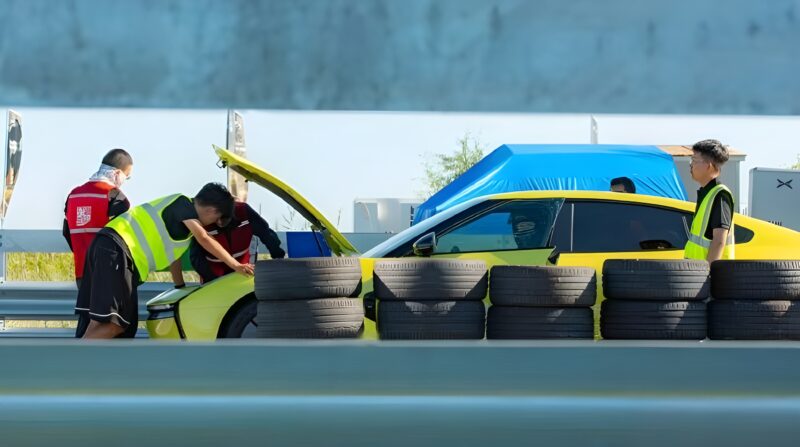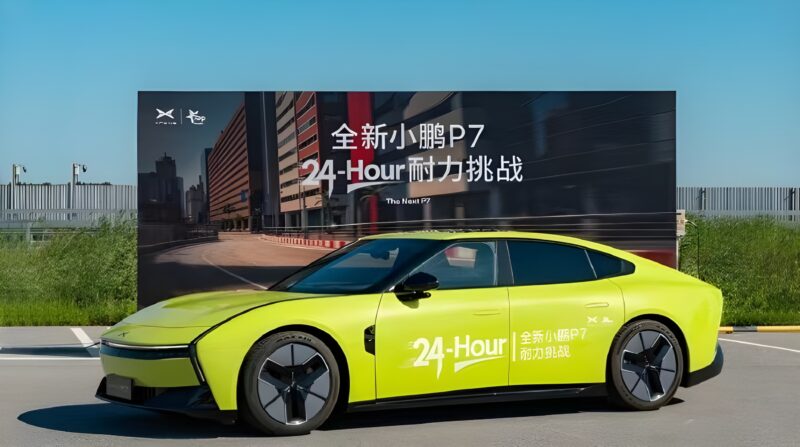Xpeng Motors has temporarily halted its 24-hour endurance test of the new Xpeng P7 after severe overnight weather caused significant standing water on the high-speed track. Xpeng’s Senior Director, known on Weibo as @XP-Jacky, posted at around 2 a.m. today that continuing the high-speed trial under such conditions would pose significant safety risks.
The decision to suspend the run was made jointly by Xpeng Motors, the China Automotive Technology and Research Centre (CATARC), and the track operator, with driver safety as the priority. The company said it intends to restart the endurance run from scratch, resetting the timing to a full 24 hours, once the track conditions are safe. The provisional plan is to resume this morning when the weather allows.
Xpeng Vice President @托马斯电火车 (on Weibo) also posted an update today, noting heavy fog and poor visibility at the test site. Teams are monitoring conditions before deciding on the restart time.
The endurance challenge was initially announced by Xpeng founder, chairman, and CEO He Xiaopeng, who said the test would involve continuous operation for 24 hours, with drivers rotating to keep the vehicle moving at sustained high speeds and performing repeated ultra-fast charging. The company described it as a demanding assessment of the P7’s electric powertrain, battery management, and durability.
The new Xpeng P7, unveiled in China on August 6 and available for pre-orders, features an 800V high-voltage architecture, a 5C ultra-fast charging AI battery capable of adding up to 525 km of range in 10 minutes, a maximum CLTC-rated range of 820 km, energy consumption of 12 kWh per 100 km, 0–100 km/h acceleration in 3 seconds, and a top speed of 230 km/h.
The 24-hour high-speed endurance format is similar to a June trial conducted by Xiaomi’s YU7 Max prototype, which covered 3,944 km at an average speed above 210 km/h (excluding charging time), with each of its 30 ultra-fast charging stops lasting 10–12 minutes. That event was certified by CATARC.
Follow us for ev updates


